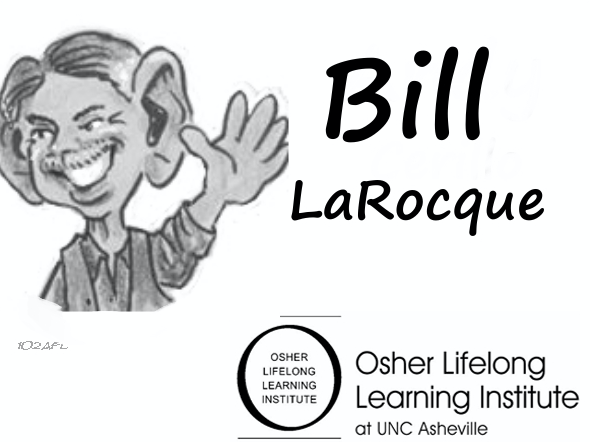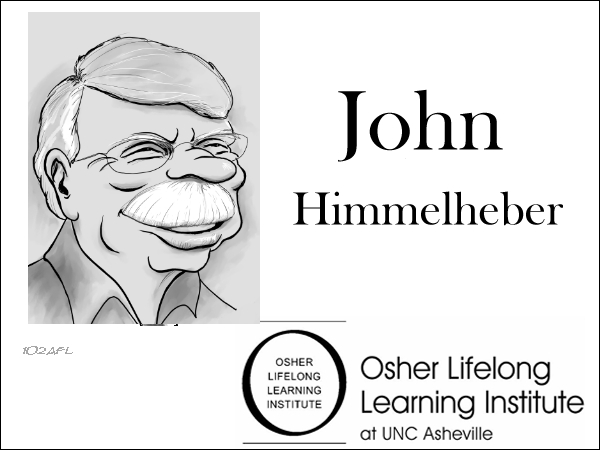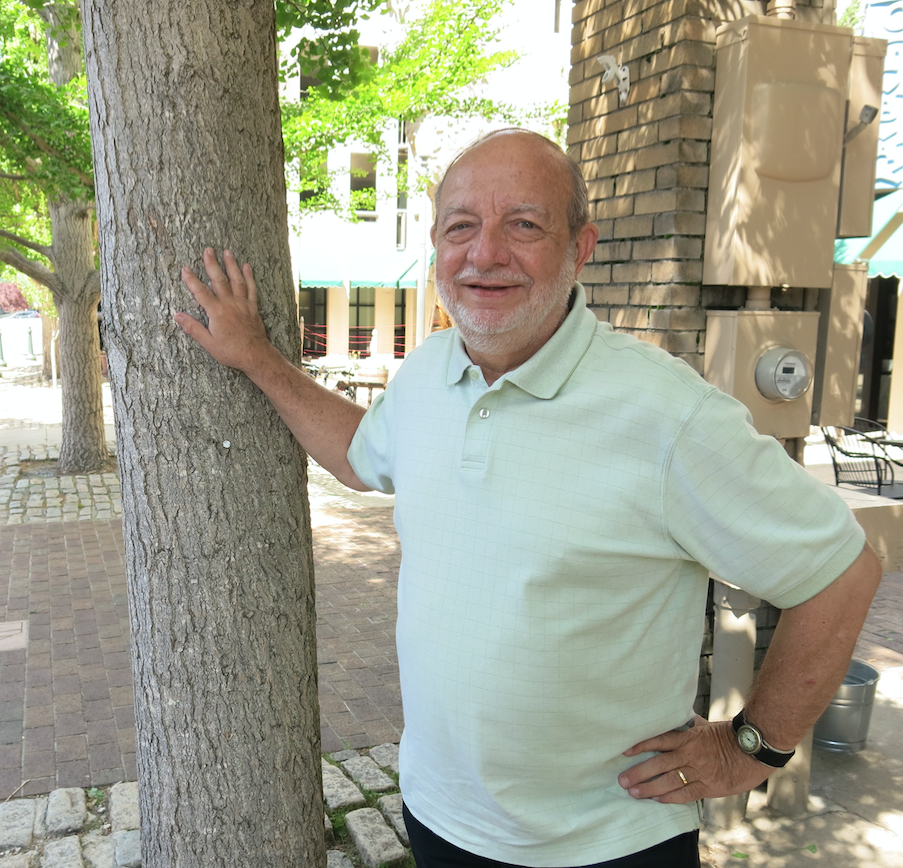In the summer of 2015, Nelson Sartoris remembers thinking, “What the hell did I get myself into?” The then 74-year-old retired professor of organic chemistry had enrolled in an eight-week writing course in poetry through the Osher Lifelong Learning Institute at UNC Asheville. There were about half a dozen published poets in the class, Sartoris says, “And I was at the ‘Roses are red’ stage.”
OLLI (formerly known as the N.C. Center for Creative Retirement) launched in 1988. It was the brainchild of UNCA’s then-chancellor, David Brown, who saw the program as a way to distinguish the campus from other regional universities as well as appeal to the area’s aging population. Closing in on its 30th anniversary, the program offers year-round courses on a number of subjects. Its upcoming summer catalog includes such topics as A Literary History of Murder, Advanced Creative Composition in Photography and Asheville’s Doomed Duo: F. Scott and Zelda Fitzgerald.
Lifelong learning is OLLI’s primary goal. But its executive director, Catherine Frank, points to people like Sartoris as an example of one of the organization’s additional aims: breaking stereotypes. “We live in a very ageist society,” she says. “I think people in general don’t believe older adults have the capacity to do and try new things. Our mission is to provide opportunities to thrive in life’s second half. In many instances, people discover or cultivate or nurture their creative side [through OLLI].”
Sartoris embodies this. By the end of the poetry workshop, he had written eight poems. To his surprise, he continued to explore the form. By May 2016, he had composed more than 100 poems on a number of themes — sentience, family, nature, reveries, aging and mortality. In August of that same year, he published his first book of poetry, Brain Slivers, through Pisgah Press.
Over the last three decades, the program has become an integral part of Asheville’s appeal to retirees. “We find that about 60 percent of our members come [to Asheville] because we are here,” says Frank. Once more, Sartoris exemplifies this claim. He and his wife arrived in the area in 2005, by way of Springfield, Ohio. Within a week, he became a member of OLLI.

Since that time, Sartoris has taken more than 120 courses, averaging about 10 per year. History, political science, art, literature and music are among the subjects he’s explored. “I’m living the dream,” he says. “The only problem is, I have to haul this body of aches and bones with me where I go, but in terms of the rest of my life here, it has been as good as it can be.”
While membership ($75 a year) is available to all ages, 95 percent of OLLI’s members are older than 55, with an average age of 68. Many come to the program with advanced degrees. Frank notes that roughly 60 percent of the current 2,300 members hold at least a master’s degree. She also points out that about 90 percent of the program’s overall population retired to Asheville from somewhere else.
This makes for experienced and engaged students but also highlights areas where the program can improve, such as in appealing to lifelong residents. Frank says OLLI is actively working to attract more native Ashevilleans, emphasizing that higher education is not a prerequisite to join. “We welcome anyone who is intellectually curious,” she says. “They don’t have to have an advanced degree to participate.”
For OLLI member and instructor Bill LaRocque, 74, the less you know the better. “I prefer that [my students] have zero in terms of skill and 100 in terms of interest and desire,” he says. LaRocque, a former IT director and Washington Post cartoonist, leads a number of art courses. He notes that he often employs humor in his instruction to reduce stress among his students, most of whom are open to the new experience but unsure about their abilities. “The whole trick is to confront why they don’t draw,” he says. “And it’s usually because they were discouraged at some early age and never continued.”

Others, like OLLI instructor John Himmelheber, 68, find classes filled with people eager to jump right in. Himmelheber offers courses in fiction, flash fiction, poetry and revision (along with the occasional golfing class). He says the students are wonderful because “more than anywhere else … you have a lot of people willing and wanting to share experiences. … It’s an atmosphere of camaraderie.”
Sartoris, the former chemist-turned-poet, shares Himmelheber’s opinion of the OLLI community. Beyond the classrooms, he and fellow members regularly meet for lunch and dinner. He also echoes Frank’s statement concerning the overall mission of the program — one of disproving stereotypes. Sartoris admits that he held similar prejudices when he first enrolled at OLLI in 2005. “I was 64 then,” he says. “One of my first thoughts was: ‘Gee, all of these old people — is this really where I’m at?’”
But with experience (and age) his views have changed. “A lot of the people, their bodies are like mine: They’re falling apart. But when it comes to their minds — you better strap on your seat belt.”
Learn more at olliasheville.com.




We were colleagues, friends and admirers of both Nelson Sartoris and his talented wife in Springfield, Ohio, for over 30 years. It does not surprise us that Sartoris continues to challenge himself in other avenues. He was an outstanding university professor, and now a gifted writer of poetry. His “Brain Slivers” book continues to entertain and enlighten us. Jerry & Andra Hamilton, Northfield, Minnesota.